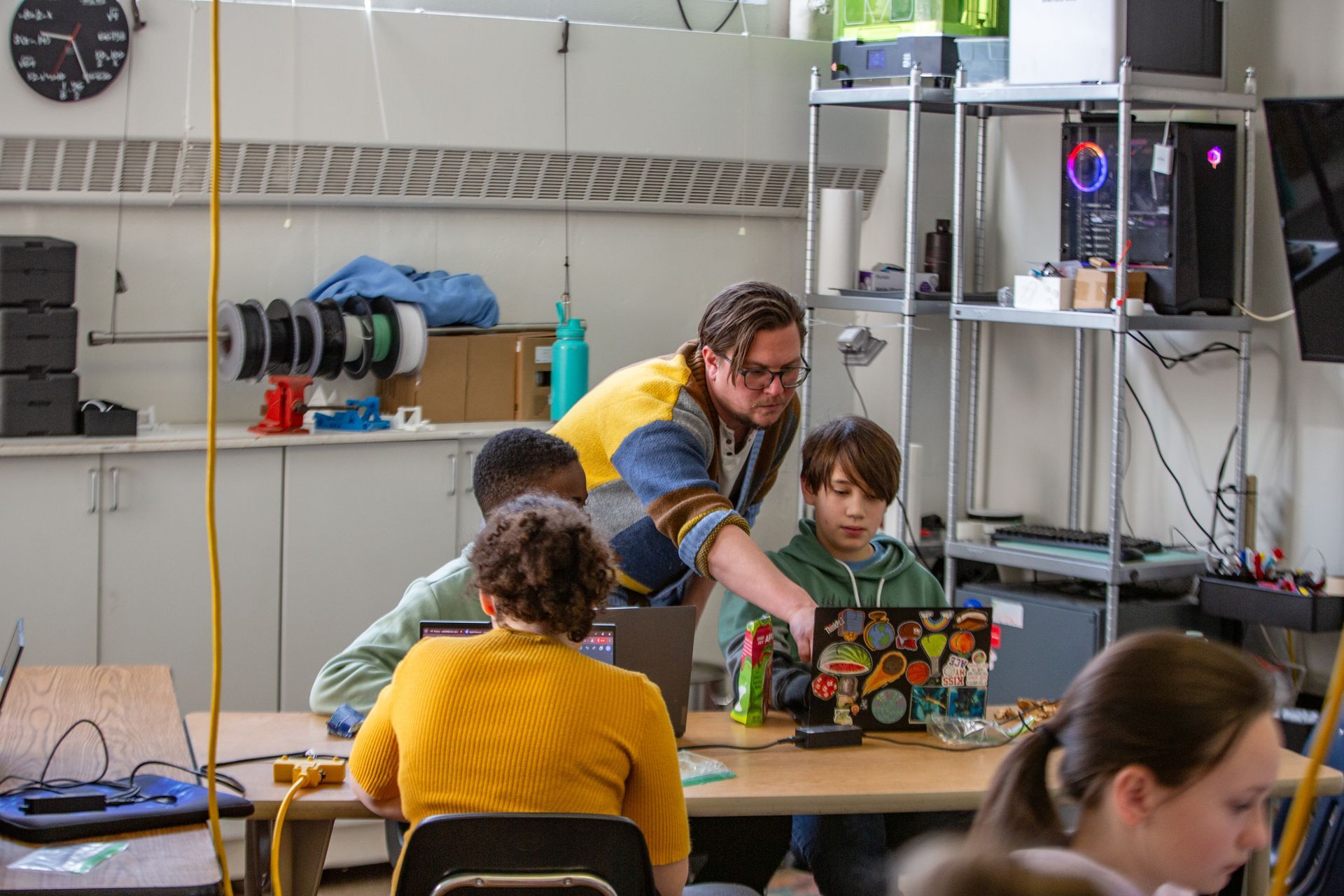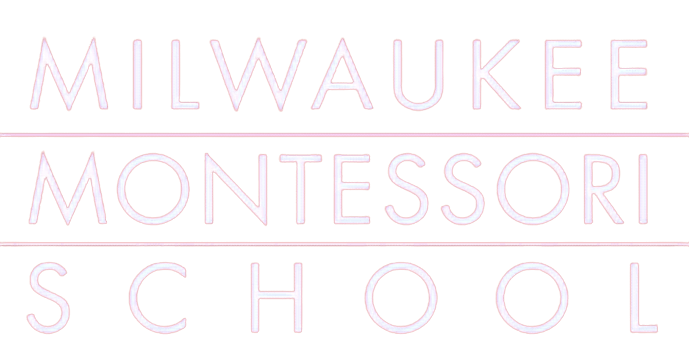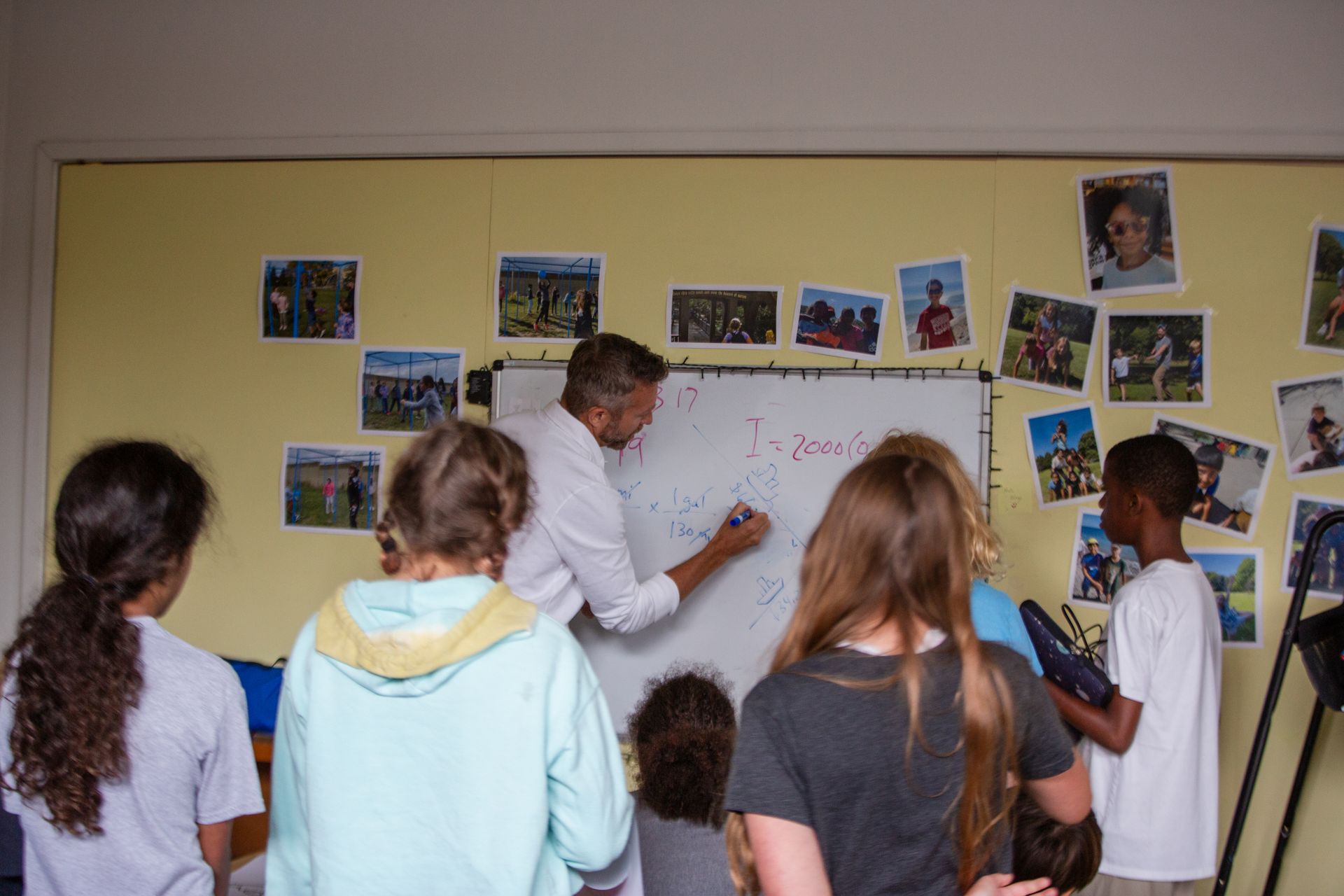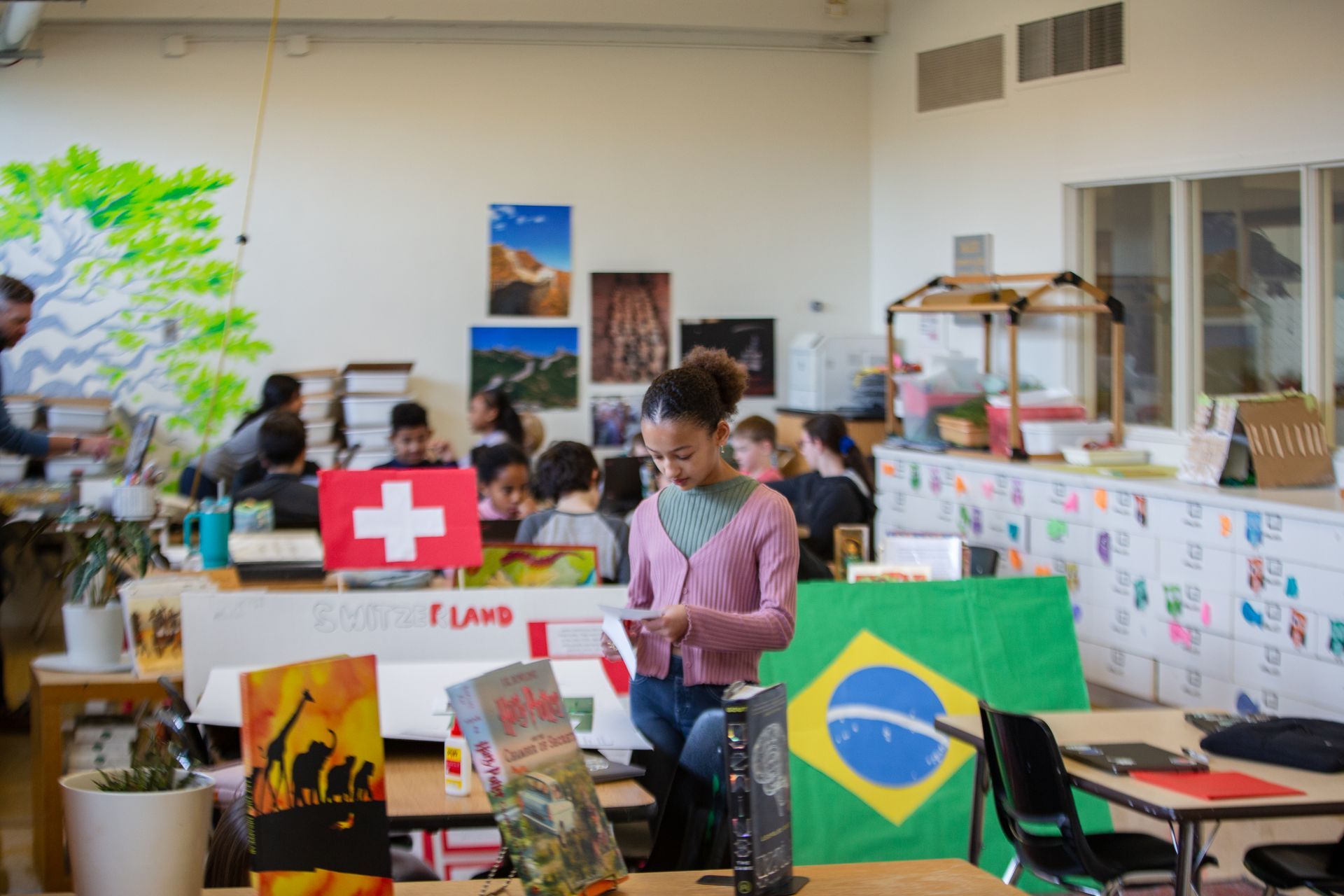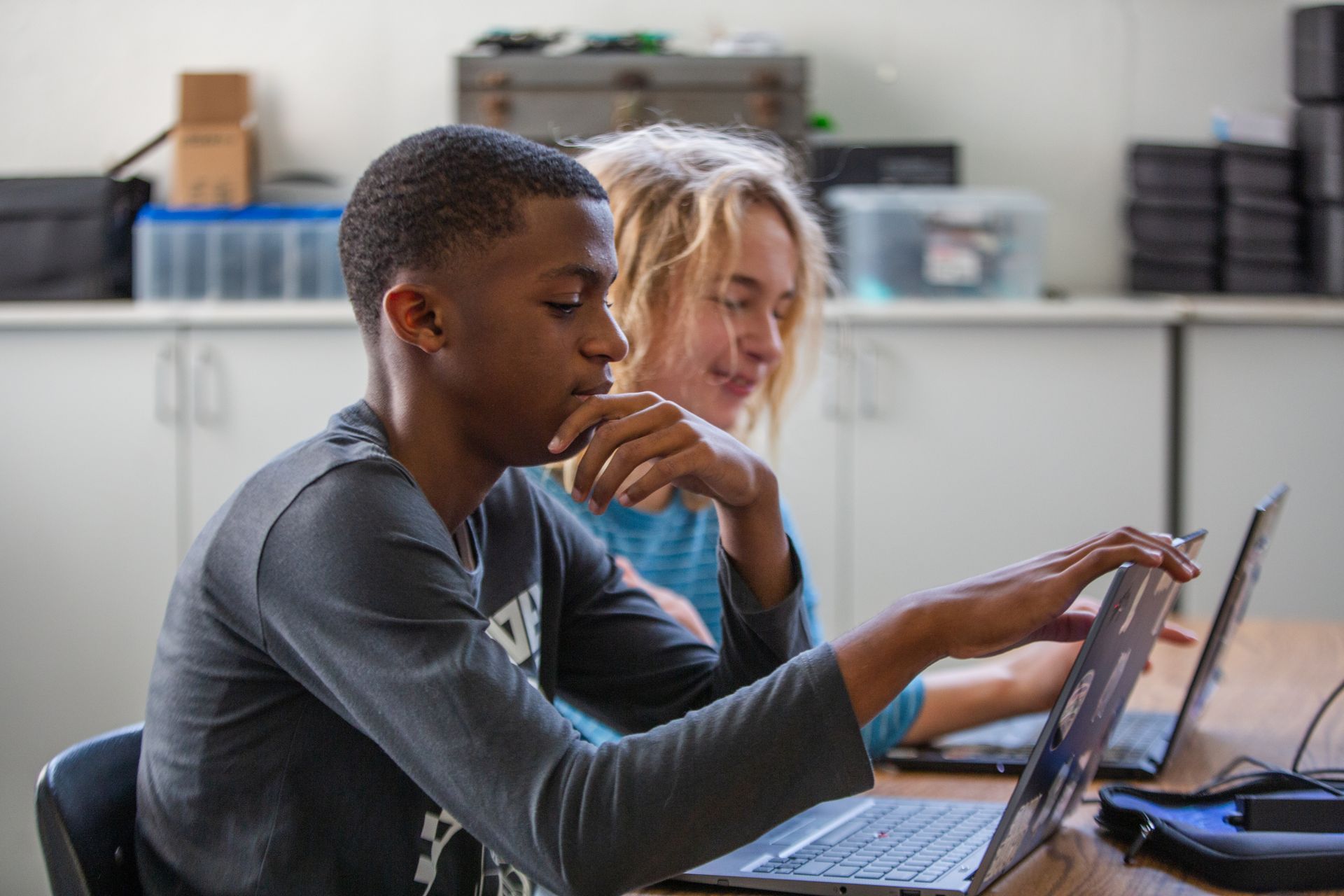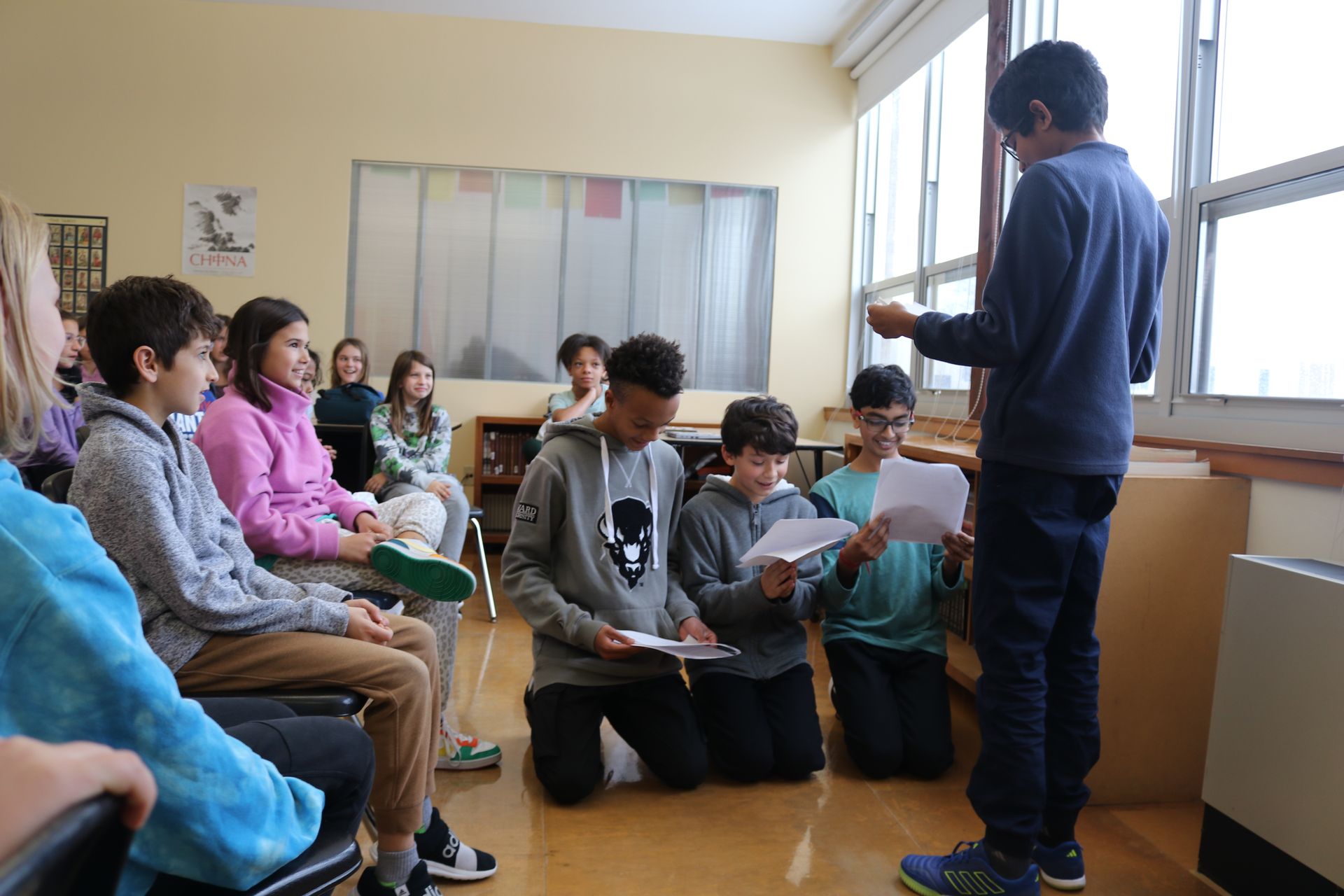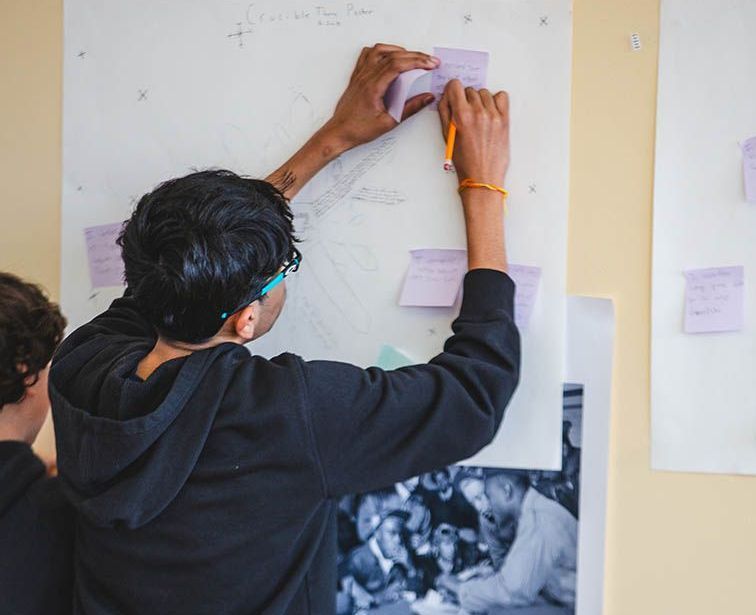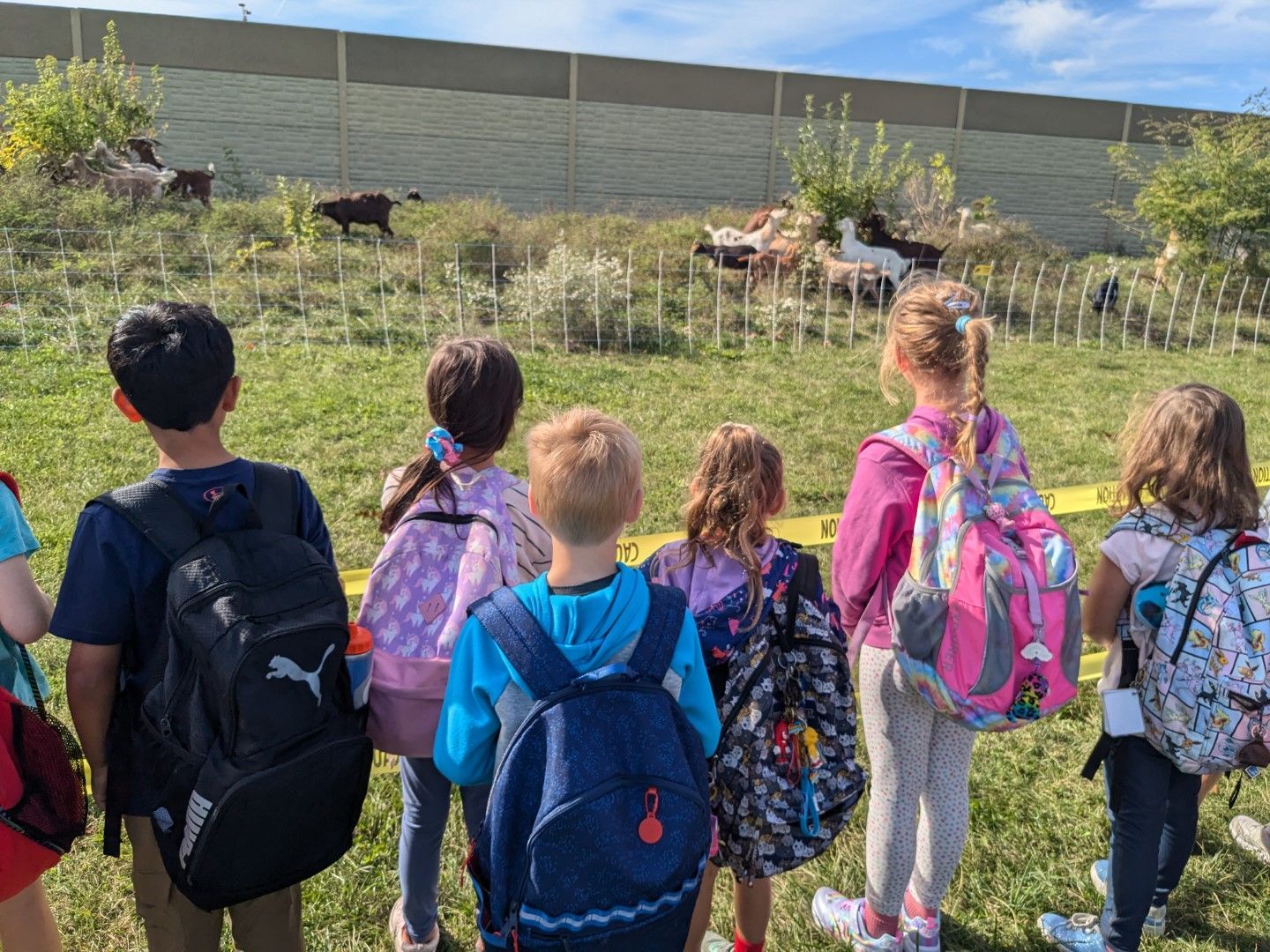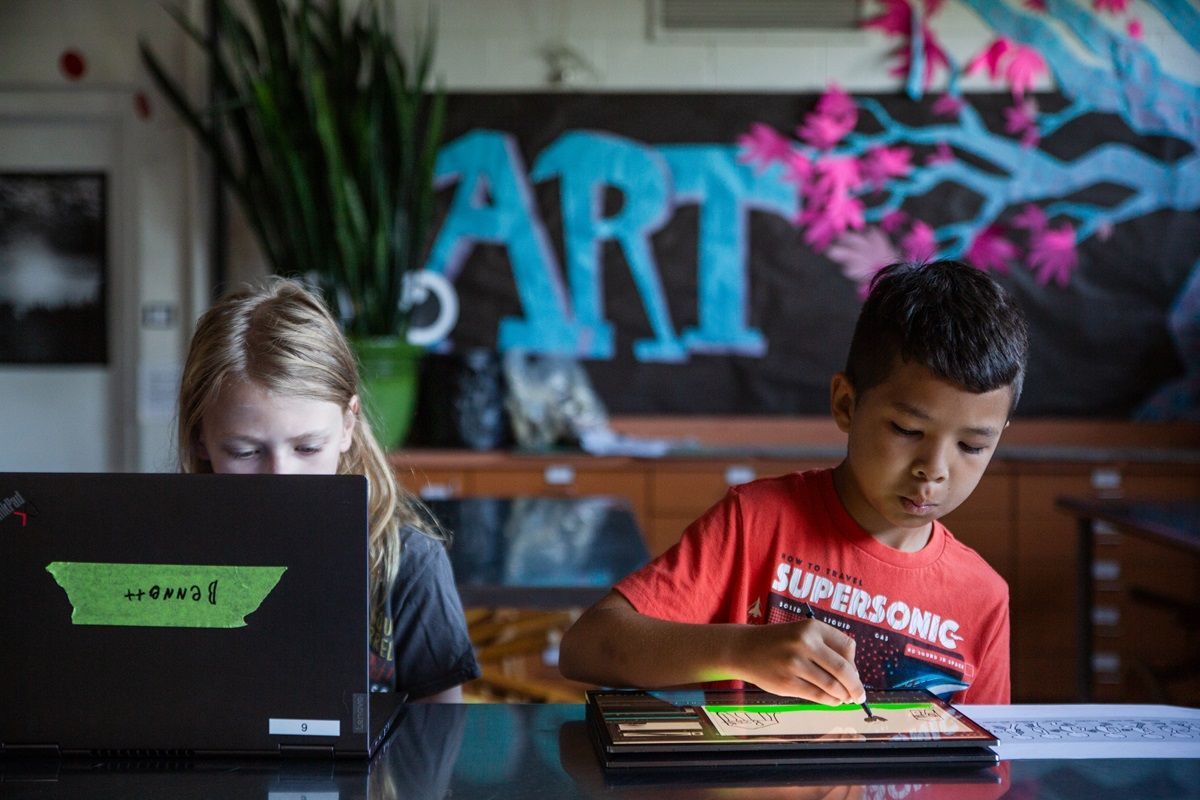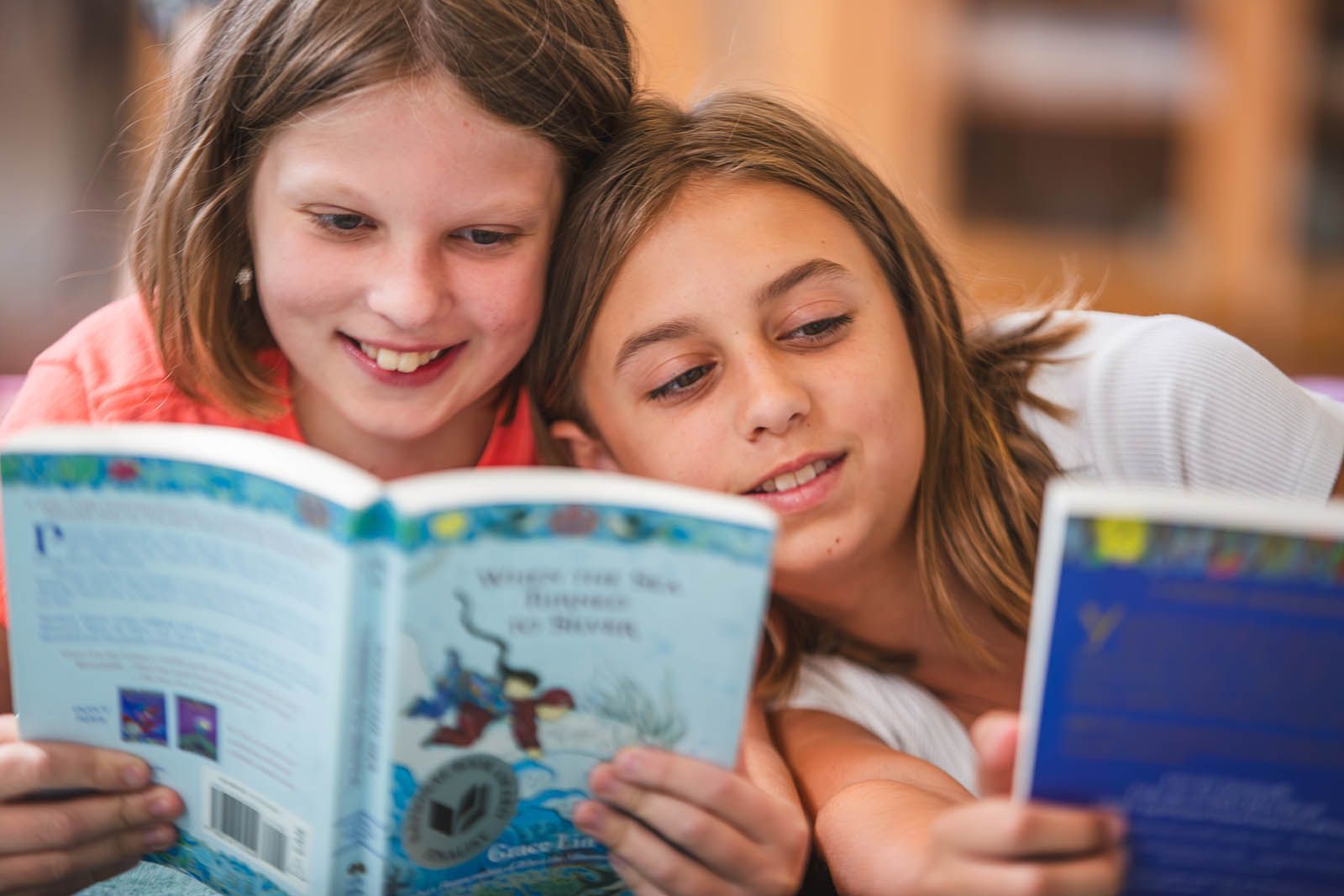On Technology 2025
New Paragraph
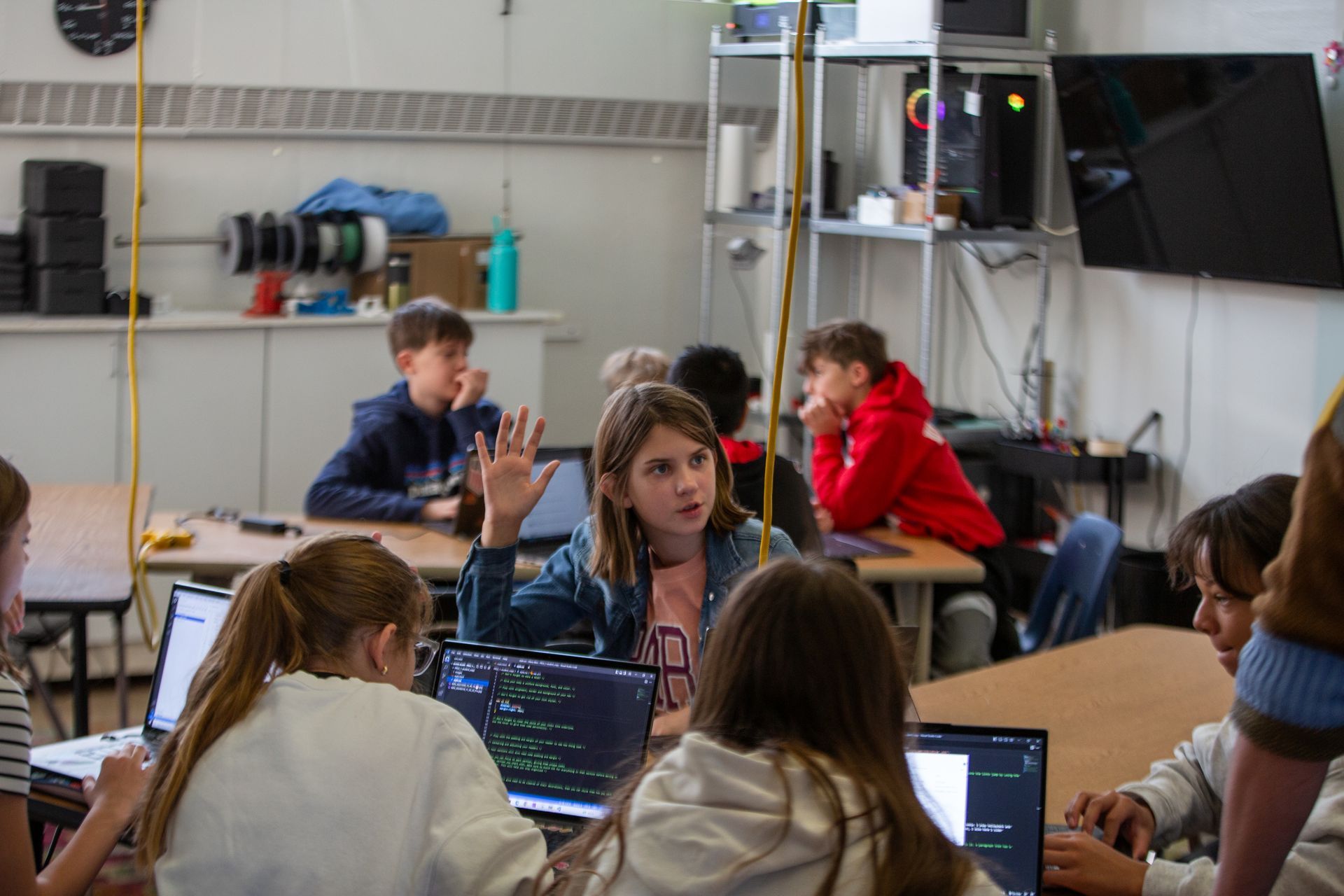
The Impact of Technology on Childhood Development
Last year, when we ordered Jonathon Haidt’s then-new book, The Anxious Generation, we knew it would be a seminal book based on its topic, and it also confirmed that our instincts about technology use among children have been spot on.
Haidt proposes four norms that can help restore children to a healthy childhood despite the creep of technology into every area of their lives. At MMS, we had already adopted those norms by 2008, when we became among the very first paperless elementary and middle schools in the nation, earning us recognition as one of six “Schools of the Future,” by the National Association of Independent Schools. Through foresight and implementing these norms over the last fifteen years, we have been able to hold back the tide of problems other schools have had to address.
While we are a high-tech school, it should be clear that our version of tech training doesn’t include ‘passive screen time.’ At Milwaukee Montessori, technology is not a distraction, but a sophisticated tool for intellectual development, creativity, and academic excellence.
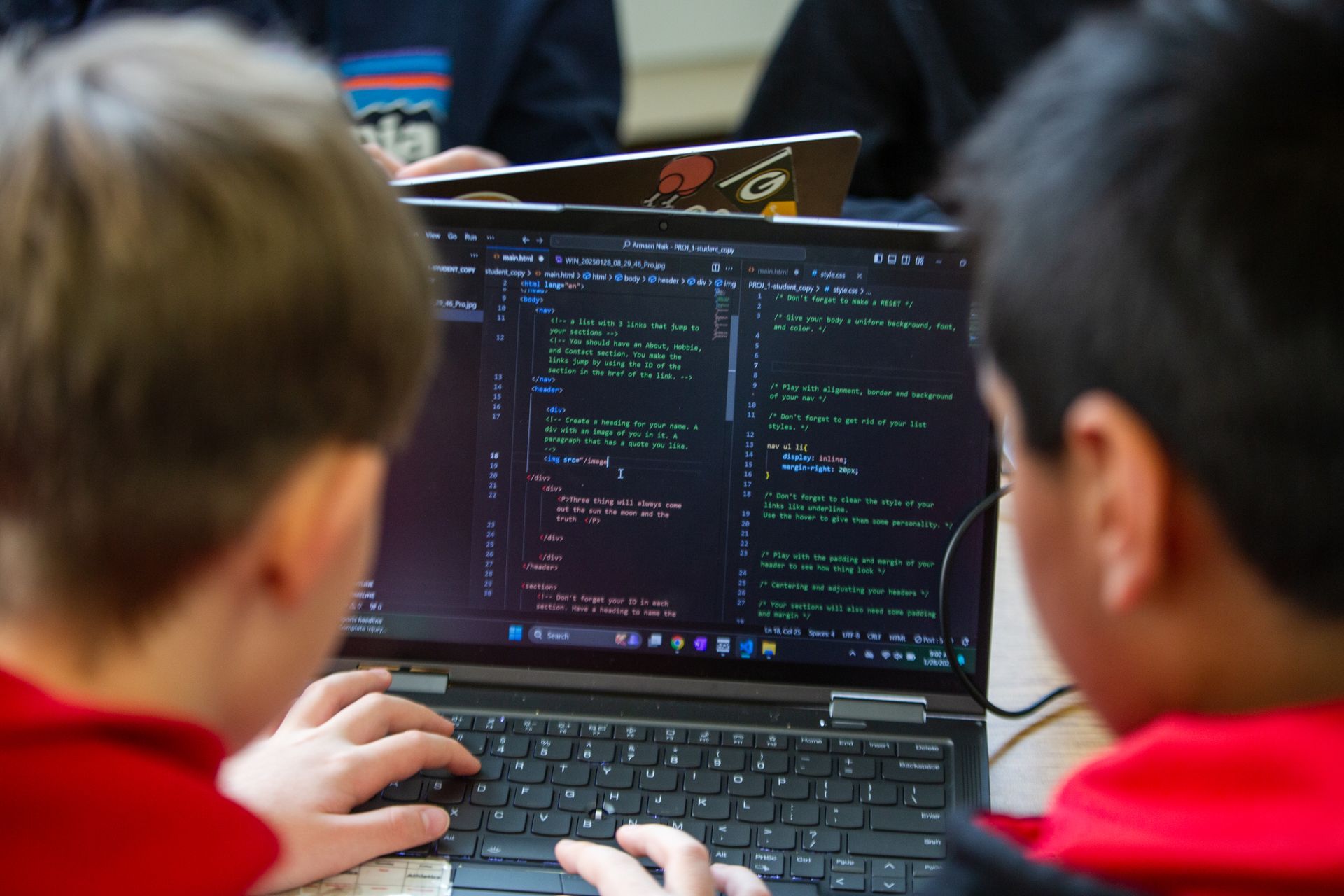
Advanced Digital Fluency: Preparing Students for a Digital Future
Our students graduate with an advanced digital fluency that sets them apart from their peers. Many are able to take AP Computer Science as early as ninth grade after graduating from MMS with a comprehensive skill set that includes managing up to 16 electronic notebooks across subjects, efficiently organizing academic work, and navigating the ethical landscape of digital learning. They understand the real consequences of plagiarism and the misuse of AI tools, and instead, use these technologies responsibly and effectively.
Our students are taught to harness the power of research databases to locate original sources, construct well-reasoned arguments, format professional-level papers for both literature and science and deliver compelling, visually polished presentations.
In short, our students don’t just consume technology—they command it.
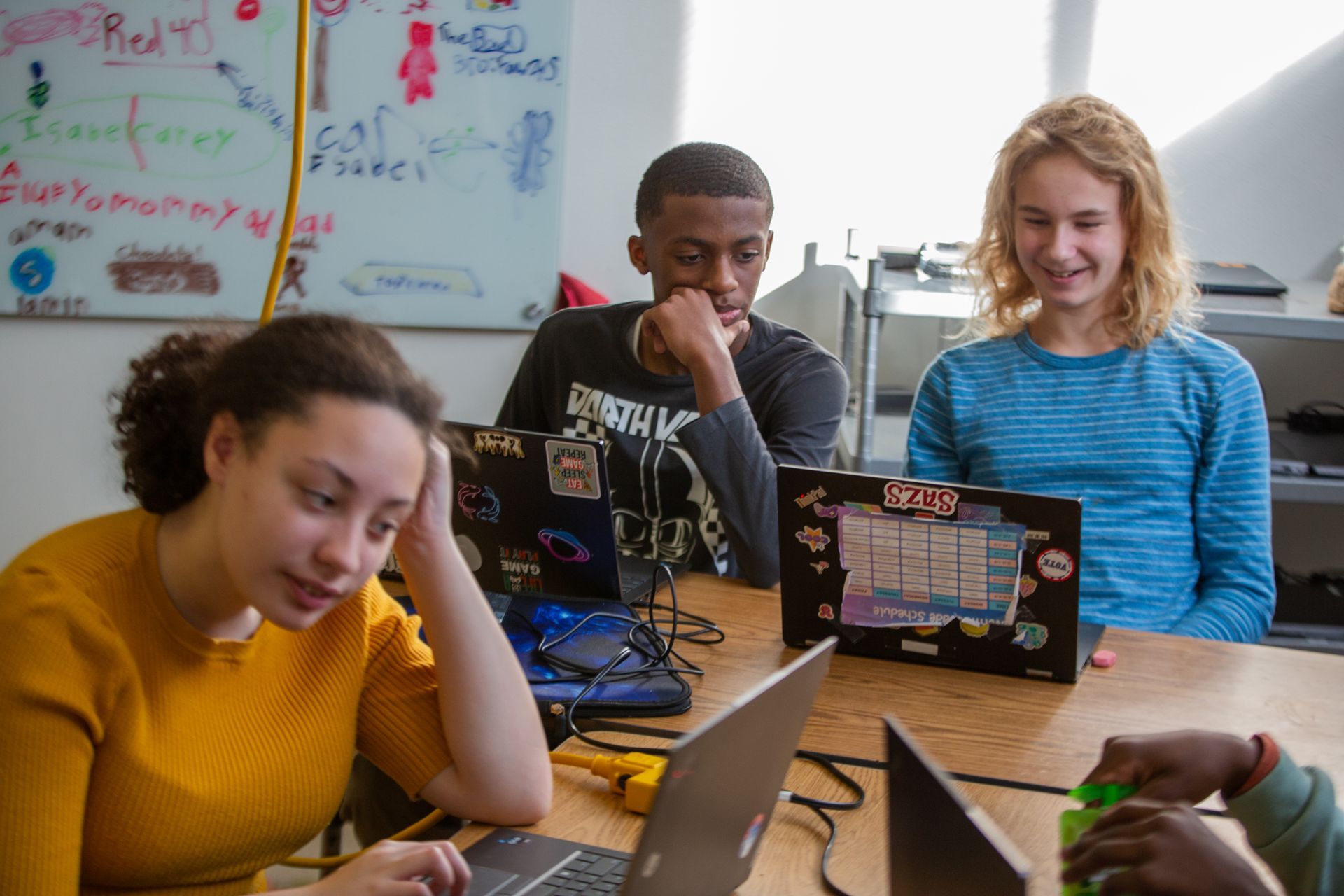
Our technology program was always designed to be a purposeful and integrated effort to prepare students for the demands of higher education and the complex digital world they are about to inherit.
MMS Approach to Haidt’s Four Norms
And to accomplish that, for fifteen years we have been implementing the same norms that Haidt proposed as a cure in 2024:
1. No Cellphones Before High School.
Since cellphones became ubiquitous, we have held fast and true to this advice: “No cellphones until high school!” Even with the culture pressing in so strongly, and many citing safety issues, we remind our parents that their young children are always supervised, and they can always call the the school and someone will relay the message. Once a parent asked us, “What if there is an emergency?” We responded, in an emergency at home, you need an adult to facilitate information to your child. If there is an emergency at school, we need children to listen to us and not be distracted by their cell phones.
2. No Social Media for Minors.
Social media is wildly inappropriate for minors, and it didn't take technology experts to know that this was going to be a serious problem for children. In fact, over ten years ago our biggest issue was alerting parents to the dangers of setting up social-media accounts for their young students, including lying about their age to say that they were 13 years old when they were much younger. These sites collect and sell children’s data, capture their attention for an average of five hours a day, and routinely expose them to inappropriate content of all types.
3. No Phones in School.
Students have never and are never permitted to use cell phones in our building or during the school day. If they have them in their bookbags, they must be turned off and if they are ever out, they are delivered to the office where parents come and pick them up. Unlike other schools that still struggle with cell phone use in schools, our students just know not to use them. It is baked into our expectations our cultural norm.
4. More Independence, Free Play, and Responsibility in the Real World.
Haidt maintains that smartphones are the symptom of a deeper problem: the crisis in childhood itself. Children need vast quantities of free play, independence, and responsibility to guide brain development and social development. Central to human development are the fun, risk, challenges, and thrills of exploring the richness of life with friends at your side (and no parents in sight). Most people born before the mid-1980s cherish memories of this kind of childhood, which perhaps makes them more receptive to this fourth norm.
Here at Milwaukee Montessori, students are given abundant opportunities to be outside, engage in physical activity, build fitness, learn playground games, and spend meaningful time with friends across age groups. While they are always supervised, we are intentional about giving our students the space to form friendships and, just as importantly, to struggle with maintaining them.
The only way to truly learn how to work well with others and become a cherished friend is to have the freedom to make mistakes, sometimes be a lousy friend, receive difficult feedback, and learn to self-correct. This kind of real-world social interaction—both successful and unsuccessful—is essential to child development. We encourage students to use problem-solving skills to address social disturbances as well as intellectual ones, not always rushing in to offer top-down management.
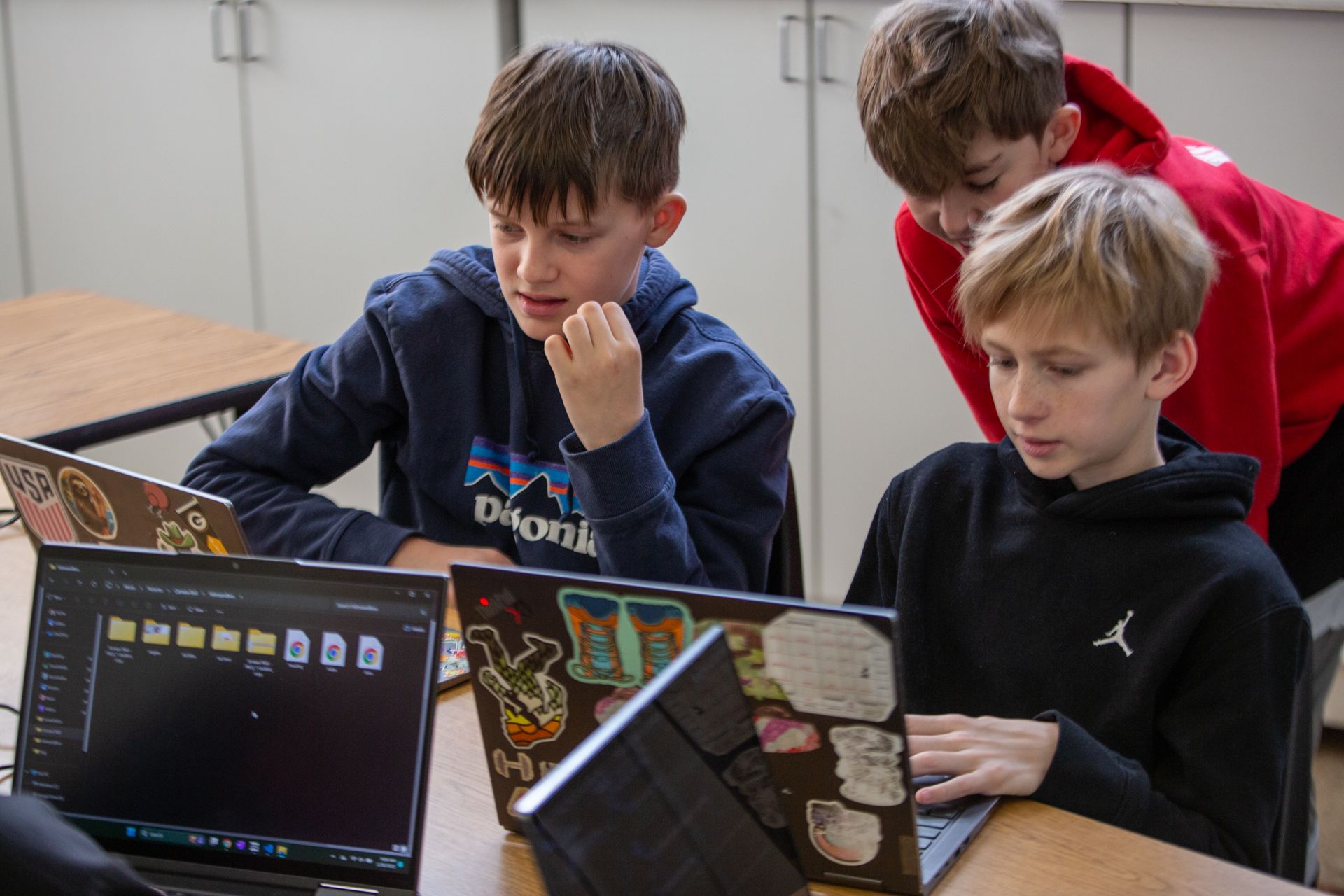
From formal debates in American History class — complete with heckling, gavels, and interruptions — to the Peace Game in Upper Elementary that gives students a seven-week simulation of real-world diplomacy, students at Milwaukee Montessori School are consistently immersed in authentic, high-stakes experiences. They perform in plays, take on ambitious independent projects in Lower Elementary, and even travel abroad to Spain in Junior High to expand their horizons.
At every level, the work is real. Students are entrusted with meaningful responsibility and granted the freedom to make decisions that aren’t always good ones, but with natural consequences and guidance this cycle of choice, consequence, and reflection becomes the foundation of sound moral development that is so very necessary in our world today.
We see our respect for child development, both by protecting children from potentially destructive influences and safeguarding the important natural processes of trial and error, to be one of the greatest advantages of an MMS education. Ours is a learning environment in which students are not only preparing for life in the future, but living fully in the work they engage with now.
Click here to read Haidt’s article in The Free Press:
https://www.thefp.com/p/taking-back-childhood-from-phones-jonathan-haidt.
